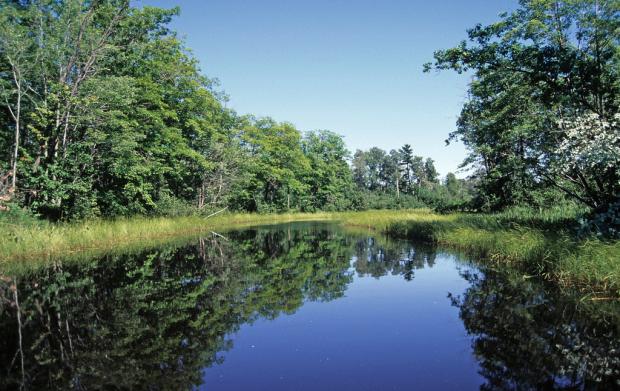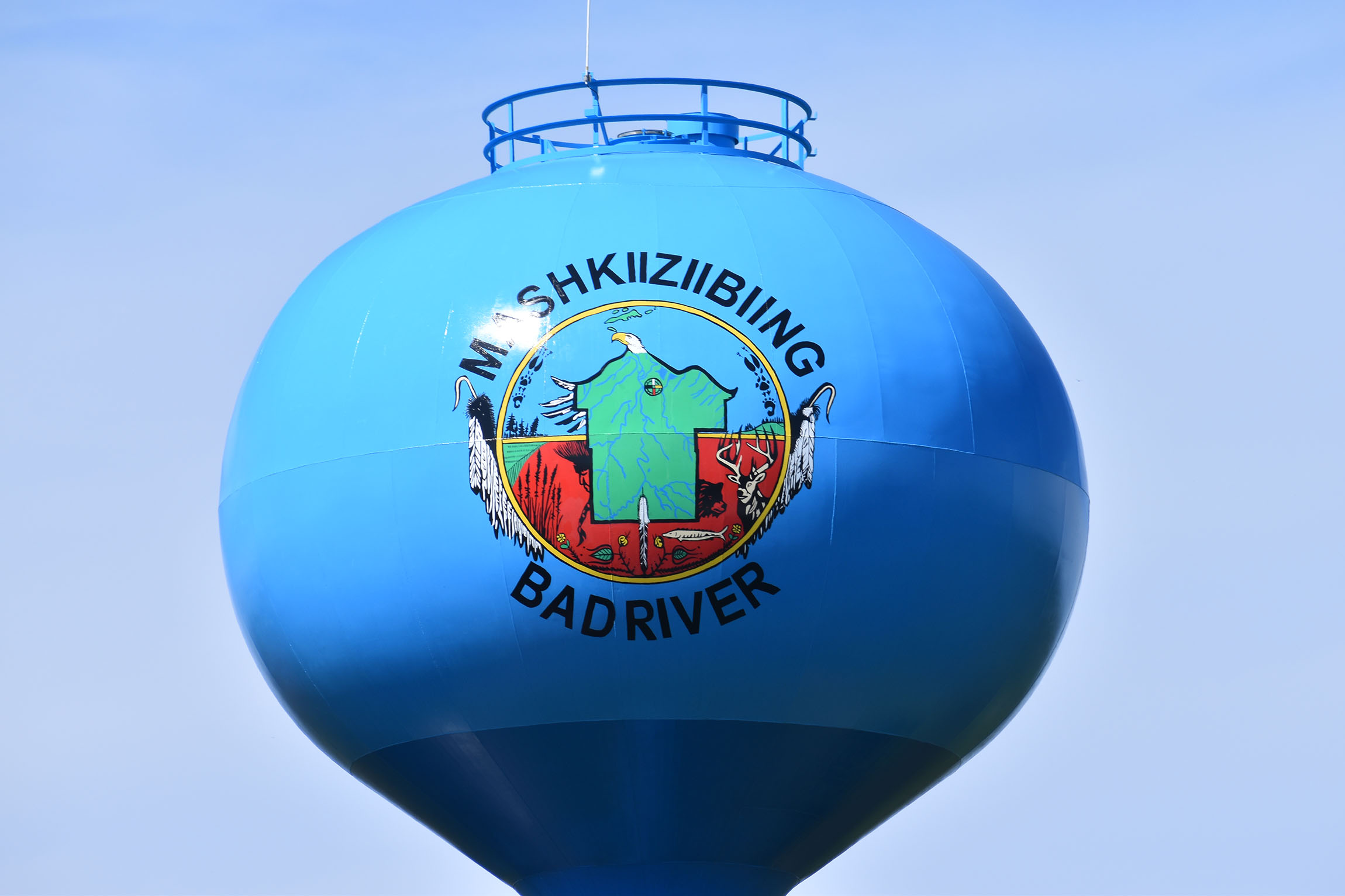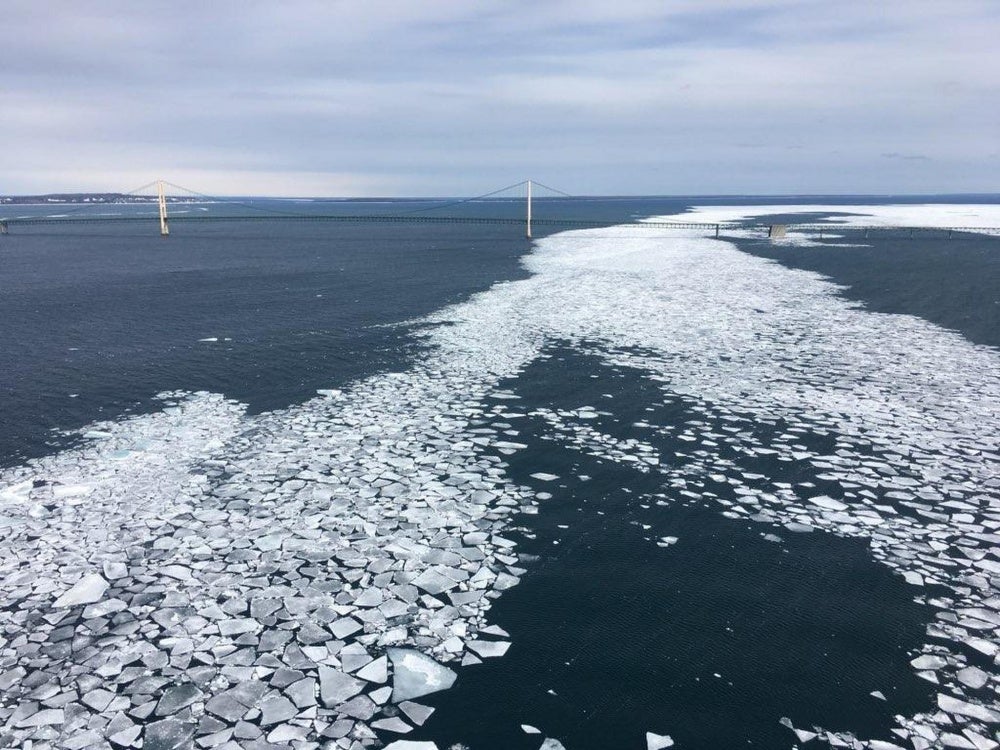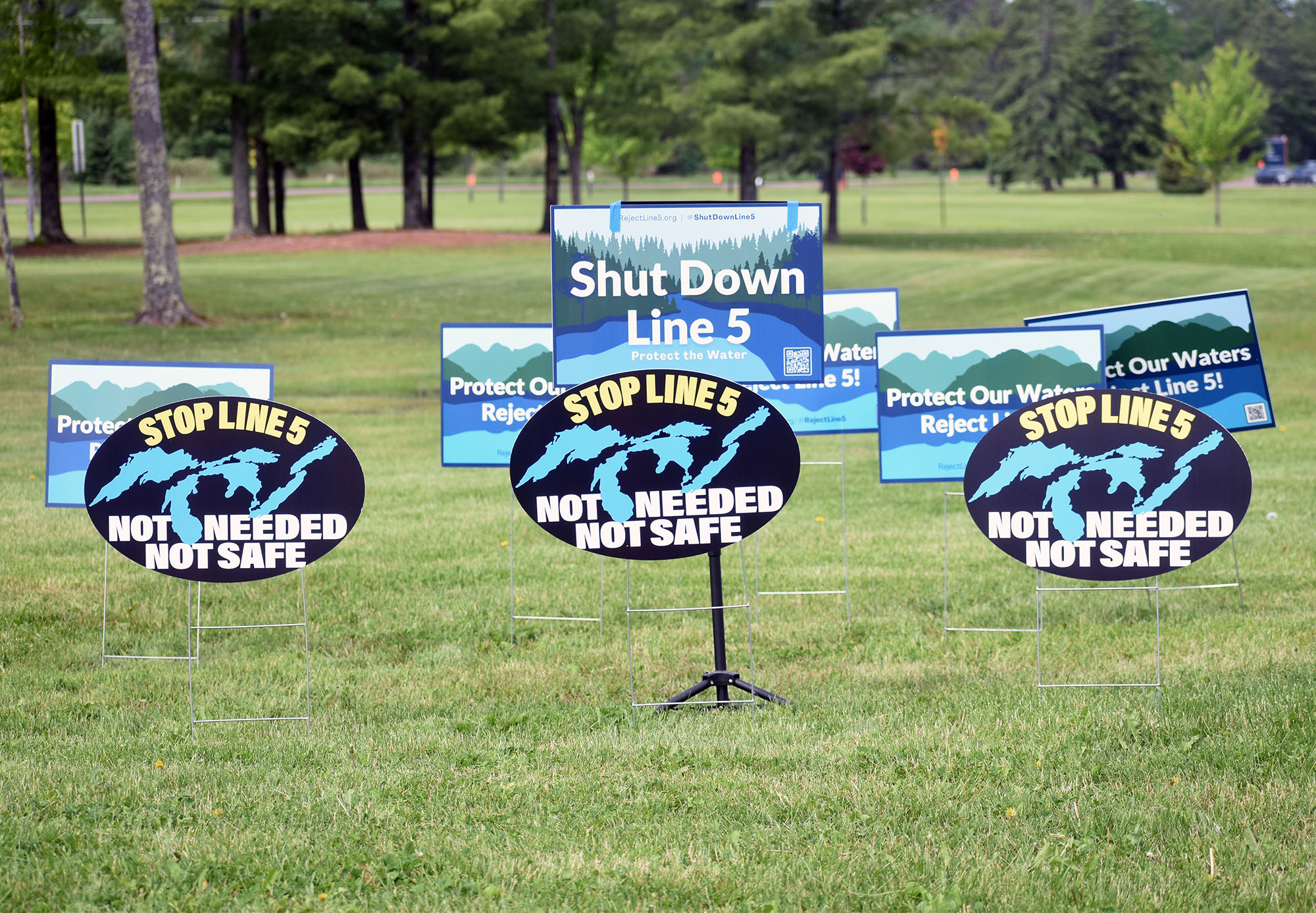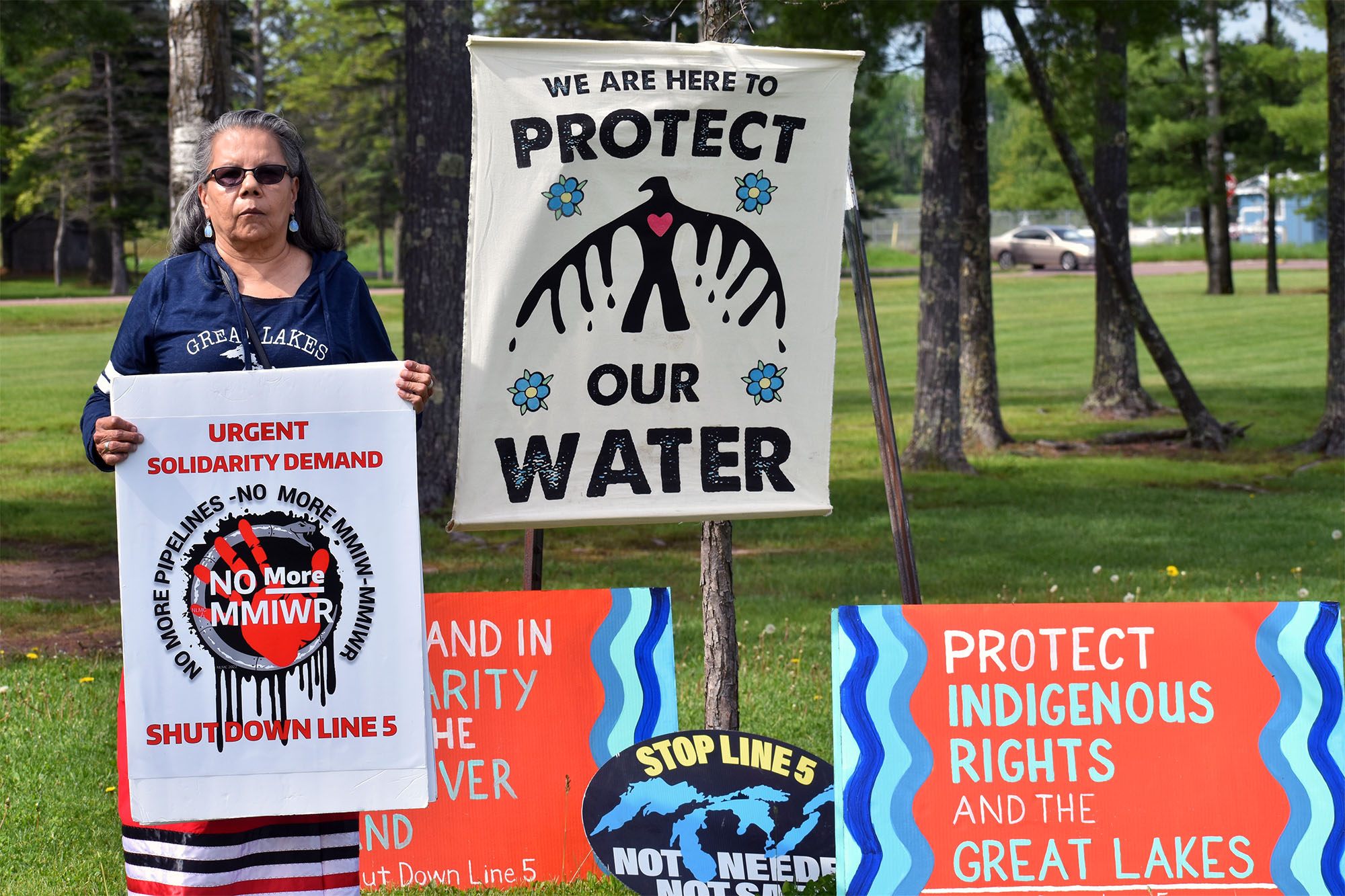Canadian energy firm Enbridge has offered the Bad River Band of Lake Superior Chippewa at least $24 million to settle a lawsuit aimed at shutting down and removing Line 5 from the tribe’s reservation, but tribal leaders say their position remains unchanged.
The pipeline crosses about a dozen miles of the reservation. Line 5 carries up to 540,000 barrels of oil and natural gas liquids per day from Superior to Sarnia, Ontario, Canada.
Enbridge’s settlement offer includes $12 million to settle claims over expired easements on allotted parcels of land. The company is also offering to pay the tribe $2 million annually beginning next year until the pipeline’s operation is no longer in use on the reservation, as well as a $10 million payment that would follow startup of a new route for Line 5 outside the reservation.
Stay informed on the latest news
Sign up for WPR’s email newsletter.
“I think it’s a very transparent offer for settlement,” said Brad Shamla, vice president of U.S. operations for Enbridge. “I think in dealing with access across our entire system, we look for win-win solutions. In this case, we think that there’s a win-win solution to be had. We’re open to look at rerouting the pipe.”
The Bad River Tribal Council passed a resolution in 2017 that opposed the renewal of easements on 15 tracts of land within the reservation. Enbridge said the majority of easements on the reservation don’t expire for more than 20 years.
Shamla said the company had not yet received a response from the tribe on its offer. Bad River Tribal Chairman Mike Wiggins said in a statement that the Tribal Council’s position on Line 5 has never wavered.
“Enbridge’s expired leases were rejected and our litigation is rooted in the protection of the Bad River Watershed hydrology. Whatever that ends up looking like for Enbridge is their problem. Decommissioning and removing the whole of Line 5 sounds like a great start,” wrote Wiggins. “Furthermore, to even respond to media inquiries regarding Enbridge’s monetary terms with the term ‘rejection’ implies ‘process.’ The process the Bad River Tribe chose when it became evident Enbridge would not stop operation was adversarial litigation to remove Line 5’s threat from our waters. All we ask of the foreign-based corporation is to leave the Bad River watershed.”

Bad River Tribal Chairman Mike Wiggins talks about thinking seven generations ahead and the impacts of Line 5 crossing the tribe’s reservation. Wiggins spoke at a International Joint Commission hearing in Ashland on Wednesday, Sept. 25, 2019. Danielle Kaeding/WPR
Enbridge is also pursuing individual settlements with those who own an interest in the allotted parcels of land along the pipeline. Under those agreements, the company would be granted access to land for rerouting the pipeline. Those who sign with the company would receive an upfront $2,000 payment regardless of whether Enbridge and the tribe reach a settlement, according to a letter to landowners.
Bad River tribal elder David “Joe” Bates received one such offer from Enbridge. Bates said he and other tribal members are adamantly opposed to continued operation of Line 5 on the reservation.
“It’s about our resources that we have, the water that we have and everything that goes with it — the animals, the birds, our manoomin,” said Bates, using the Ojibwe word for wild rice. “That’s sacred to us.”
Bad River tribal elder Joe Rose Sr. said the Bad River and the surrounding watershed are “priceless.”
“I’m looking seven generations ahead. I’m looking out for my grandchildren, great-grandchildren and even those yet unborn,” said Rose. “What kind of a world are they going to live in if we allow Enbridge and these mining companies and all of these others that come in to poison our water and our air?”
Tribal members fear the Bad River watershed, Lake Superior and surrounding resources are threatened by the potential of a spill on the company’s pipeline, which began service in 1953.
Enbridge said the pipeline has operated safely across the reservation for decades. In September, an Enbridge crew was granted access to Line 5 on the reservation to make temporary repairs and install supports where the pipeline had become exposed. When asked about the size of the exposure, Shamla said, “It’s in the order of feet.”
“We’ve got a longer-term plan that we put together and we’ve put in front of the Band,” said Shamla. “It’s essentially filling in the area that was exposed.”
The tribe referenced fears over the exposure of the pipeline in its lawsuit, citing potential threats due to changing conditions of the river. Shamla said the exposure occurred in an area of hilly terrain known as Slope 18 where it’s not uncommon for washouts to occur, stressing that Line 5 is continuing to operate safely on the reservation.
“Our strong preference is that we come to a negotiated agreement,” said Shamla. “As we work forward, we’ll look for input and collaboration on design, permitting and construction and ongoing operation to the extent that it continues to operate on the reservation.”
In the meantime, Shamla said they’re continuing to conduct surveys in Ashland and Iron Counties as they seek an alternative route for Line 5. Enbridge said the pipeline is critical to meeting the energy needs of the upper Midwest.
Wisconsin Public Radio, © Copyright 2025, Board of Regents of the University of Wisconsin System and Wisconsin Educational Communications Board.
